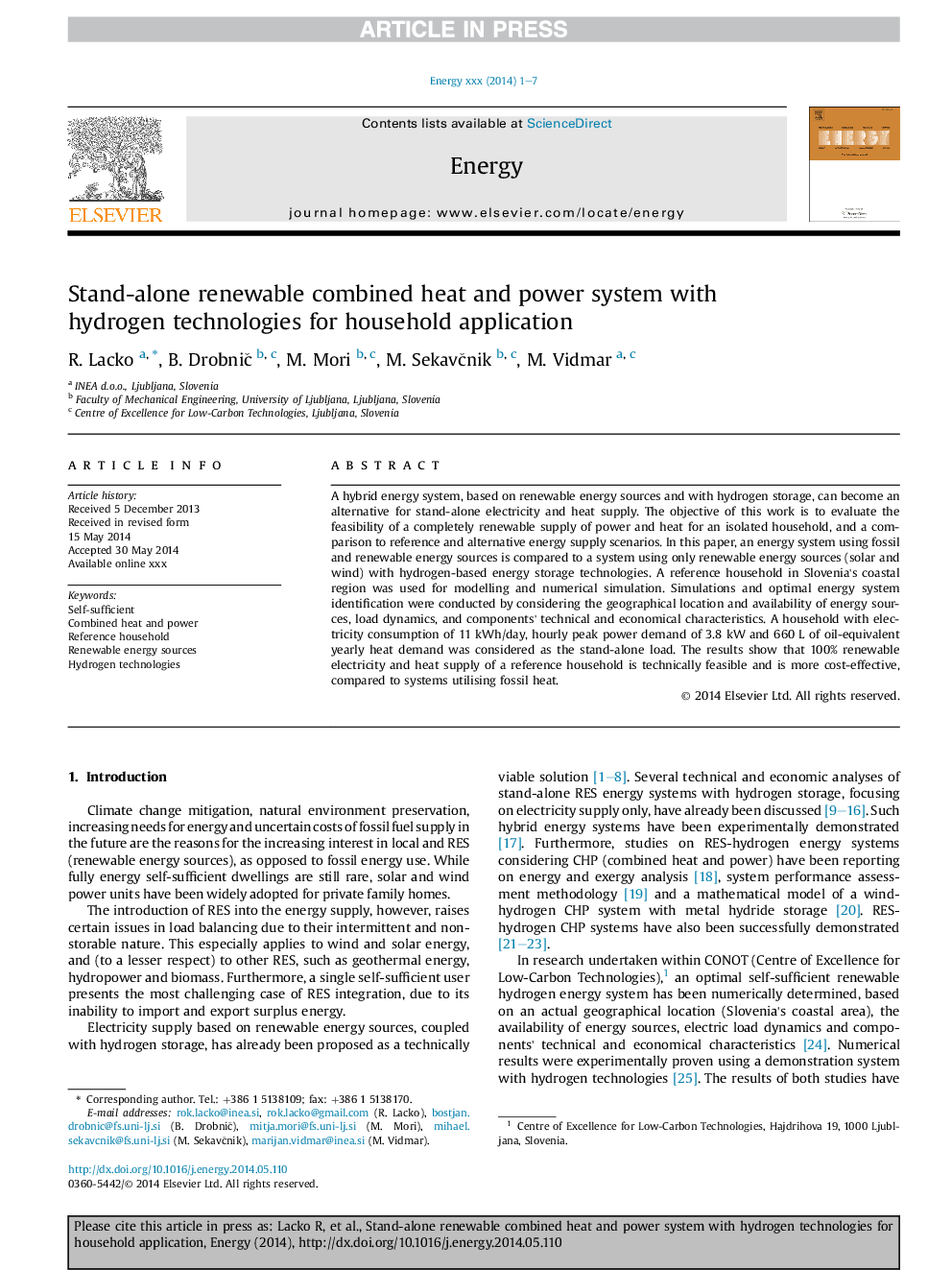| Article ID | Journal | Published Year | Pages | File Type |
|---|---|---|---|---|
| 8076326 | Energy | 2014 | 7 Pages |
Abstract
A hybrid energy system, based on renewable energy sources and with hydrogen storage, can become an alternative for stand-alone electricity and heat supply. The objective of this work is to evaluate the feasibility of a completely renewable supply of power and heat for an isolated household, and a comparison to reference and alternative energy supply scenarios. In this paper, an energy system using fossil and renewable energy sources is compared to a system using only renewable energy sources (solar and wind) with hydrogen-based energy storage technologies. A reference household in Slovenia's coastal region was used for modelling and numerical simulation. Simulations and optimal energy system identification were conducted by considering the geographical location and availability of energy sources, load dynamics, and components' technical and economical characteristics. A household with electricity consumption of 11Â kWh/day, hourly peak power demand of 3.8Â kW and 660Â L of oil-equivalent yearly heat demand was considered as the stand-alone load. The results show that 100% renewable electricity and heat supply of a reference household is technically feasible and is more cost-effective, compared to systems utilising fossil heat.
Related Topics
Physical Sciences and Engineering
Energy
Energy (General)
Authors
R. Lacko, B. DrobniÄ, M. Mori, M. SekavÄnik, M. Vidmar,
